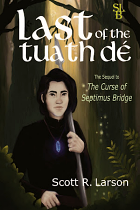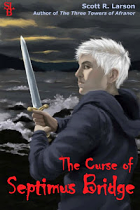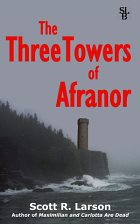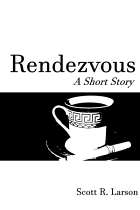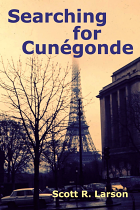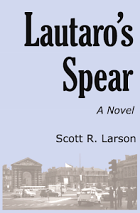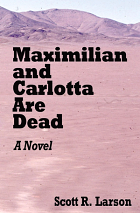Floating Cork
After many happy years of attending the Corona Cork Film Festival, it was disappointing for me to have missed the past couple of years. I’m not blaming anyone but myself, but part of the problem was that the festival shifted from its usual October slot into November, which didn’t suit me as well. And at times it seemed as though the universe itself was trying to keep me away, with the past two winters in Ireland being both early and harsh. Two years ago I watched in amazement when the telly showed me the street that I regularly traversed to get from my hotel to the various film venues looking like a canal in Venice. Would my poor little car have survived in its parking spot on the banks of the River Lee?
While I didn’t manage to make it down for the whole week this year, at least I did make it for a couple of days. I ventured down from our old stomping ground in Kerry into Cork city where I kept a suspicious eye on the river and its water level. (Perhaps tempting fate, one of the films I had booked a ticket for was called The House Under the Water.) My favorite hotel looked none the worse for the wear, and the pleasant woman at reception even remembered me, not having to ask me my name when she checked me in. Obviously, I had made some sort of impression that a couple years’ absence couldn’t erase.
On the whole, Cork seem little changed from my previous visit. (While a film festival no-show the past couple of years, I had been down to visit on at least one occasion in the interim.) I love wandering around the Mall and the Grand Parade and all the back streets of the city center, brimming with cafés and pubs and restaurants. But there was at least one sad change since my last visit. The wonderful Kino Cinema has since closed and become a rundown building. Owned by Mick Hannigan, director of the Cork Film Festival, it was a funky repertory cinema that played all kinds of arthouse, foreign and independent films—in other words, its own year-round film festival. It was a favorite venue for the Cork Film Festival, often showing some of the stranger or more provocative titles, oftentimes at or around midnight. As I understand it, an arts grant had been secured to expand the place into a three-screen cinema with a bar and restaurant—something that would have been wonderful. But costs of the project soared and initial expenses wound up sinking the project. It was truly a sad turn of events. Not only did Cork lose a cinematic landmark, but the film festival lost one of its best sites for movies.
At the opening night festivities on Sunday, there were references to decreased funding for the festival. If money is tighter, you cannot tell from the enthusiasm of the volunteers and the attendees. The schedule is replete with the usual array of films from all over the world, documentaries, experimental cinema of all types and the festival’s trademark: hour after hour of short films, from everywhere but many having been made right in Cork. But there seemed to be fewer of the sort of the high-profile films of years past from America and western Europe. There was a sense that, as with so much in Ireland these days, times are that much harder because of the economy.
But at least one venue looked like it had had some money spent on it since my last visit. The Cork Opera House, the veritable heart of the festival, has had a redo since my last visit, with more comfortable seats. The only drawback from my personal point of view, though, is that they have gotten rid of the center aisle, which means there are fewer aisle seats with good views of the screen. Oh well, it would be churlish to complain, so I won’t.
The opening night program featured the customary touting of Cork as a great film center and a pretty wonderful place in general. In his remarks, local son Michael Barry—managing director of Barry & Fitzwilliam Ltd., distributor of the Mexican beer that is included in the festival’s title—took what could have been a dry speech by a corporate sponsor and spun his own whimsical verbal spaghetti western, complete with product placements from his own business. But, just in case the audience thought it got off easy, the relatively new Minister for Arts, Heritage and the Gaeltacht, Jimmy Deenihan, did a fair amount of rambling in his remarks. What kept it entertaining was that Kerryman Deenihan continually wandered off into extolling the film connections and history of County Kerry. Maybe it was only my imagination, but I thought I could sense all the Cork people in the audience shifting in their seats every time Deenihan referred to the Dingle Film Festival or the Kerry Film Festival or Kerry in general. By the end the minister more or less acknowledged his own county bias and suggested that he might be hitting up Barry & Fitzwilliam for contributions to his own arts projects, adding with a wink that he might be going through Mrs. Barry, who happens to be from County Kerry.
Predictably, a couple of days at the film festival was only enough to whet my appetite and make me regret that I wasn’t going to be there for the entire eight days. But I am a the-glass-is-a-quarter-full-and-not-three-quarters-empty kind of guy, and so I was happy to take what I could get. In the space of a bit more than 24 hours, I managed to see a pretty recent American release, an Estonian thriller, an Iranian drama and a concert film focusing on a very funny Irish comedian. Not too bad for a flying visit.
I know I should have seen more short films while I was there, but I only saw one. I will end here by giving my impression of it.
Fond of a Moth
One thing you cannot argue with is that you are not at all likely to come across a film with a title like Fond of a Moth anywhere but at a film festival. This brief film features a single actor and has not one word of spoken dialog, but it manages to tell a fairly coherent story. It is really a visual poem. A piece of paper used to move a moth turns out to be a photograph of a woman. The discolored rectangle on the wall is clearly where the photograph had long been. The lone human being is Mossie Griffin, whose weathered face and flowing hair suggests something like Richard Harris when he was playing Professor Dumbledore. His eyes, as much as the other visual clues, go a long way to filling in a bittersweet backstory. Brian Cronin wrote and directed.
-S.L., 10 November 2011
If you would like to respond to this commentary or to anything else on this web site, please send a message to feedback@scottsmovies.com. Messages sent to this address will be considered for publishing on the Feedback Page without attribution. (That means your name, email address or anything else that might identify you won’t be included.) Messages published will be at my discretion and subject to editing. But I promise not to leave something out just because it’s unflattering.
If you would like to send me a message but not have it considered for publishing, you can send it to scott@scottsmovies.com.















